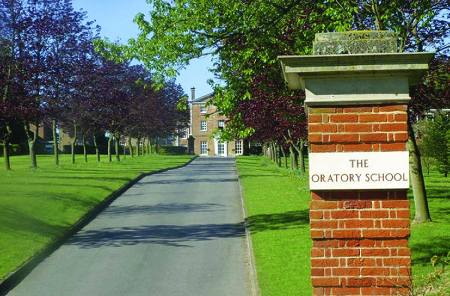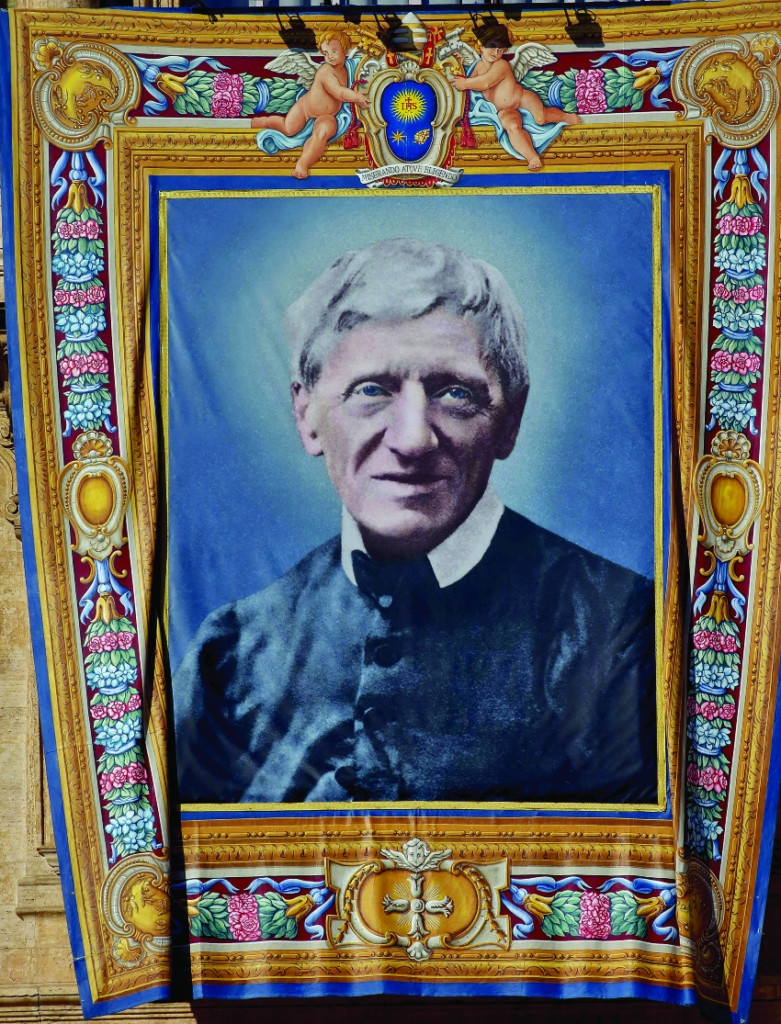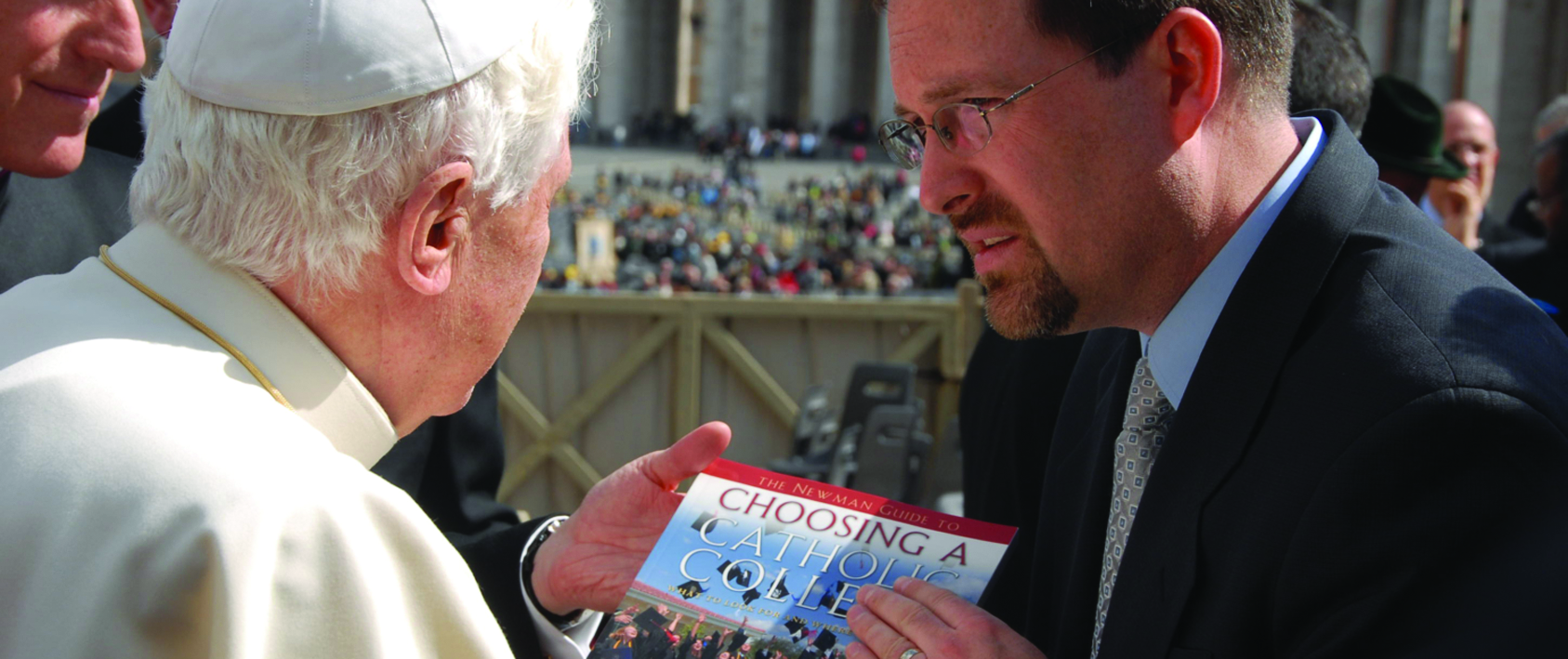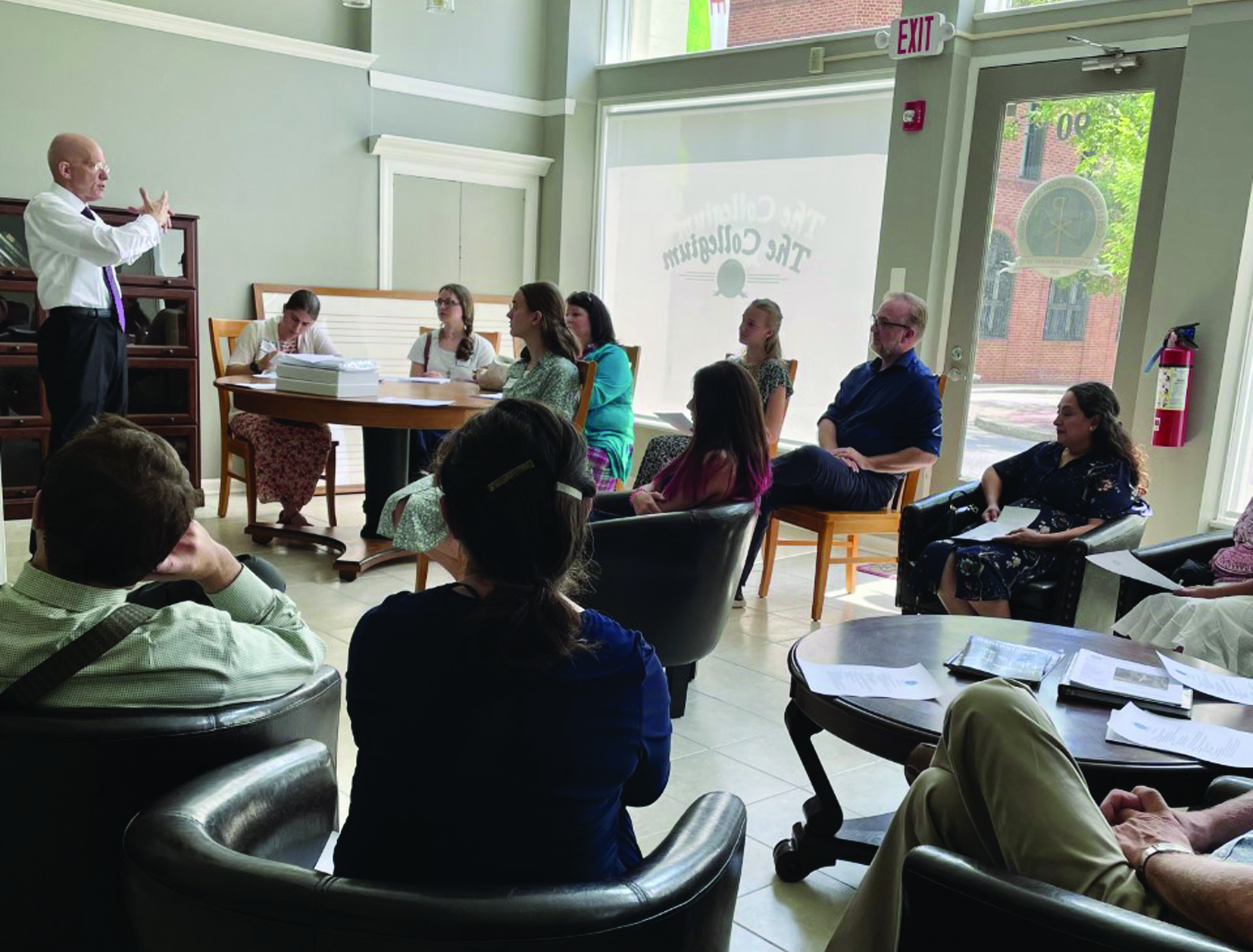He was a man of faith, of holiness, and of intelligence — and of practical wisdom as well
By Christina Deardurff
John Henry Newman, 19th-century Anglican clergyman, intellectual giant, convert, and eventual Cardinal of the Catholic Church, was canonized by Pope Francis last month, on October 13, in Rome. We continue here our celebration, begun in the last issue, of that event with an interesting and little-known account of one crucial factor in Cardinal Newman’s conversion: St. Paul of the Cross.
St. Paul, who lived in the 18th century, prayed for 50 years for the conversion of England, and left that legacy to his spiritual sons. One direct fruit of that devotion was John Henry Newman.
Following that, we consider Cardinal Newman’s legacy, as a theorist and explicator of the principles of Catholic education, by giving voice to a number of college presidents; they are all men who lead institutions included in the Cardinal Newman Society’s Guide to Colleges — a relatively small number which it considers “faithful to Catholic education.”
Each of these college presidents gives us a view of his school’s particular approach to implementing the educational vision of Cardinal Newman — an instructive example of true “unity in diversity” as well as a practical guide for parents and grandparents who are rightly disturbed by the imposed secularism and moral corruption evident on most (sadly, even Catholic) college campuses.
Even the very university which Cardinal Newman helped to establish in 1854, the Catholic University of Ireland (now the secular University College Dublin), is among those which have “lost the dream” which Cardinal John Henry Newman had of “a liberal education for Catholics,” the Archbishop of Dublin, Diarmuid Martin, has said.
“The main universities proclaim themselves to be by definition exclusively secular and thus they shun any real place for religion in their culture.”
Indeed, if surveys are correct, the minority percentage of Catholic students who emerge from college with their faith intact continues to shrink; at the same time, students across the board are graduating with poorer intellectual skills: a double loss.
Cardinal Newman proposed a remedy to this loss.
He was a man of immense faith and intelligence, but he was also a practical man, who helped found a university, a separate debating society within it that still exists, and a Catholic boys’ boarding school, The Oratory School, dubbed “the Catholic Eton.” So he was an inspiring man in many ways.
Newman’s ideas about the natural affinity between faith and reason, articulated especially in The Idea of the University, were actually put into practice, more or less successfully, and, a century and a half later, have stood the test of time.

The Oratory School near Oxford, England, founded in 1859 based on the ideas of Cardinal John Henry Newman.
- The Story Behind the Conversion of St. John Henry Newman
- Impacting the Culture for Christ
- Newman Believed Education Should Produce “Good Members of Society”
- Here’s What College Education Should Really Be About
- Nurturing Newman’s Ideas of a University at Belmont Abbey College
- Academic Freedom and the Catholic University
- Discipline of Mind in Catholic Education
- Liberal Education as the University’s Principal Purpose
- More Than an “Idea”







Facebook Comments